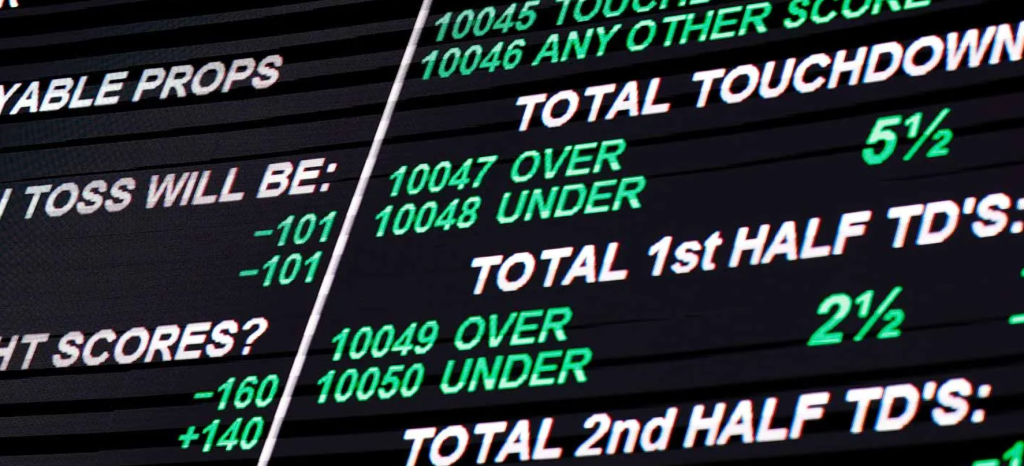
Yes, sports betting is legal in Canada. The Canadian government allows for sports betting through provincial gaming authorities, which regulate and oversee the industry. Different provinces have their own rules and regulations when it comes to sports betting, so it”s important to be aware of the specific laws in your area.
One of the most popular forms of sports betting in Canada is through online sportsbooks. These websites allow Canadians to place bets on a wide range of sports, including hockey, basketball, and football. Many online sportsbooks are licensed and regulated by the provinces, providing a safe and secure environment for bettors.
While sports betting is legal in Canada, there are certain restrictions in place to protect consumers. For example, individuals must be of legal age to place bets, typically 18 or 19 depending on the province. Additionally, there are regulations in place to ensure fair play and prevent problem gambling.
Overall, sports betting is a popular and legal form of entertainment in Canada. With the rise of online sportsbooks, Canadians have more options than ever to place bets on their favorite sports teams and events. As long as bettors follow the rules and regulations set forth by the provincial authorities, they can enjoy the thrill of sports betting in a safe and responsible manner.
Overview of Sports Betting Laws
Sports betting laws can vary greatly from one jurisdiction to another, with some countries having strict regulations while others have more relaxed rules. In the United States, for example, sports betting was illegal in most states until the Supreme Court ruled in 2018 to allow each state to decide for itself whether to legalize it. This has led to a patchwork of regulations across the country, with some states fully embracing sports betting while others have yet to pass any legislation on the matter.
Many countries around the world have legalized sports betting and have established regulatory bodies to oversee the industry. These bodies are responsible for ensuring that operators comply with the law, protecting consumers, and preventing corruption in sports. In some cases, these regulatory bodies also work with law enforcement agencies to investigate and prosecute illegal gambling activities.
- Some countries have strict regulations on sports betting, while others have more relaxed rules
- In the United States, sports betting was illegal in most states until the Supreme Court ruling in 2018
- Regulatory bodies oversee the sports betting industry in many countries and work to prevent corruption
Regulations on Online Betting
Pin-up bet is a popular form of gambling that has grown significantly in recent years. However, it is important to be aware of the regulations that govern this industry to ensure a safe and fair gaming experience for all players.Some of the key regulations on online betting include age restrictions, licensing requirements, and responsible gambling measures. It is important for online betting operators to verify the age of their players to prevent underage gambling. Additionally, obtaining a proper license is essential to ensure that the operator is operating legally and ethically. Responsible gambling measures, such as setting deposit limits and providing resources for problem gambling, are also important to protect players.
- Age restrictions
- Licensing requirements
- Responsible gambling measures
Provincial Differences in Legality
In Canada, each province has its own laws and regulations regarding gambling and casinos. This means that what is legal in one province may not be legal in another. For example, in some provinces, online gambling is strictly regulated and only government-run websites are allowed to offer casino games. In other provinces, private online casinos are permitted as long as they are licensed and regulated by the government.
Provincial differences also extend to land-based casinos. Some provinces have a limited number of casinos, while others have a more liberal approach and allow for a larger number of establishments. The types of games offered at these casinos can also vary from province to province. For example, some provinces may allow for a wider variety of table games and slot machines, while others may have restrictions on certain types of games.
Overall, it is important for casino enthusiasts to be aware of the provincial differences in legality when it comes to gambling. It is always recommended to check the specific laws and regulations in your province before engaging in any form of gambling to ensure that you are not breaking any laws. By staying informed and following the rules, you can enjoy your casino experience without any legal issues.
Impact of Criminal Code
The Criminal Code has a significant impact on the casino industry. It sets out regulations and laws that casinos must adhere to in order to operate legally. This includes rules around gambling, money laundering, and fraud prevention. Casinos must ensure they are in compliance with these regulations to avoid facing penalties or even losing their licenses.
One of the key areas regulated by the Criminal Code is money laundering. Casinos are required to have strict anti-money laundering measures in place to prevent criminals from using the casino to launder money. This includes reporting large transactions to the authorities and conducting thorough background checks on customers. Failure to comply with these regulations can result in severe consequences for the casino.
Overall, the Criminal Code plays a crucial role in shaping the operations of casinos. It helps to maintain integrity and fairness within the industry by setting out clear guidelines and regulations for casinos to follow. By adhering to the Criminal Code, casinos can ensure a safe and secure environment for both their customers and staff.
Potential Changes in Legislation
As a casino expert, it is important to stay informed about potential changes in legislation that could impact the industry. These changes could range from new regulations on gambling activities to tax laws affecting casino operations.
One potential change in legislation that casinos should be aware of is the legalization of online gambling in certain states. This could open up new opportunities for casinos to expand their customer base and increase revenue through online platforms.
Another important consideration is the possibility of stricter regulations on gambling advertising. This could impact how casinos market their services and attract customers, leading to changes in promotional strategies and partnerships with advertising agencies.
Overall, staying informed about potential changes in legislation is crucial for casino operators to adapt to new regulations, comply with legal requirements, and remain competitive in the ever-evolving gaming industry.
